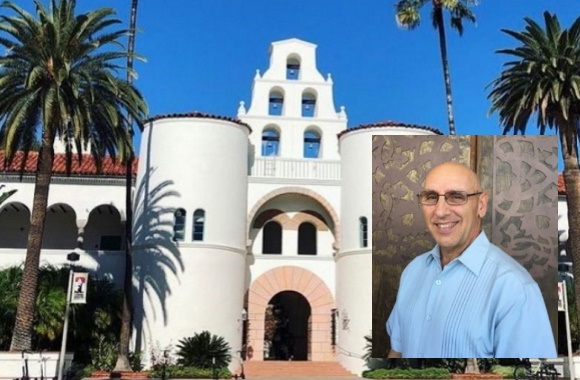
An open letter signed by dozens of faculty at San Diego State University argues that the “mostly white tenured professors” who use the faculty listserv to defend free speech and academic freedom create a hostile environment for the school’s black scholars.
At issue is a debate raging at the public institution regarding Professor J. Angelo Corlett’s use of racial epithets to explain the difference between racial and racist language.
The Latino philosophy professor was removed from teaching a class earlier this semester as SDSU investigates his pedagogy and other concerns.
“The support for Corlett has been expressed in a number of venues to which we as faculty have been subjected to. This means that our Black faculty colleagues are also being subjected to this collectively generated hostile environment which privileges tenured professors ‘freedom’ over their safety and well-being,” the open letter states.
 “Every day we have opened our inboxes to messages circulating on faculty listservs in the College of Arts and Letters that undermine student concerns about Corlett in favor of prioritizing the fears and insecurities of mostly white tenured professors, some of whom have already retired.”
“Every day we have opened our inboxes to messages circulating on faculty listservs in the College of Arts and Letters that undermine student concerns about Corlett in favor of prioritizing the fears and insecurities of mostly white tenured professors, some of whom have already retired.”
It does not list specific examples or name names.
Titled “Open Letter in Solidarity with Black Students and Faculty at SDSU March/April 2022,” it also bemoaned the Foundation for Individual Rights in Education’s efforts to defend Corlett’s academic freedom.
The SDSU faculty call out FIRE’s letter in support of Corlett, which they claim “downplays student concerns in order to exploit this situation to mobilize their supporters against a nebulous academic culture of ‘censorship.'”
FIRE’s letter stated in part: “As faculty, we are deeply concerned by this apparent violation of Professor Corlett’s academic freedom, which is protected by both SDSU policy and Corlett’s First Amendment rights as a professor at a public university.”
“Furthermore, we worry about the implications of this case for faculty members’ due process rights. Preemptively removing a professor from the classroom is a serious sanction justified only in the most severe circumstances. Such a measure is wholly uncalled for as a response to a professor’s classroom speech demonstrably protected by academic freedom, even if that speech is found offensive or troubling by some listeners.”
It has 162 professoriate signers as of Sunday night.
As for Corlett, he has also penned an open letter to defend himself but also to say he will change his teaching methods.
“I am willing to give it a try next time and see if it works as it would much better respect the black people who are pained by my original way of teaching the material in question,” he wrote.
“But let’s be clear: It is not because of demands that vitiate freedom of expression that I am willing to do this. Rather, it is because I MENTIONED a racial epithet that triggered pain in some of the people in the group that I LOVE and RESPECT so greatly. Being linguistically contemporary (‘relevant’) in teaching can often help us professors relate better to young students. But it has its risks. In this way, it is a bit like edgy humor in that it is complicated,” Corlett wrote.
MORE: SDSU professor who teaches about racism punished for teaching about racism
IMAGE: Teerasan Phutthigorn / Shutterstock
Like The College Fix on Facebook / Follow us on Twitter







Please join the conversation about our stories on Facebook, Twitter, Instagram, Reddit, MeWe, Rumble, Gab, Minds and Gettr.